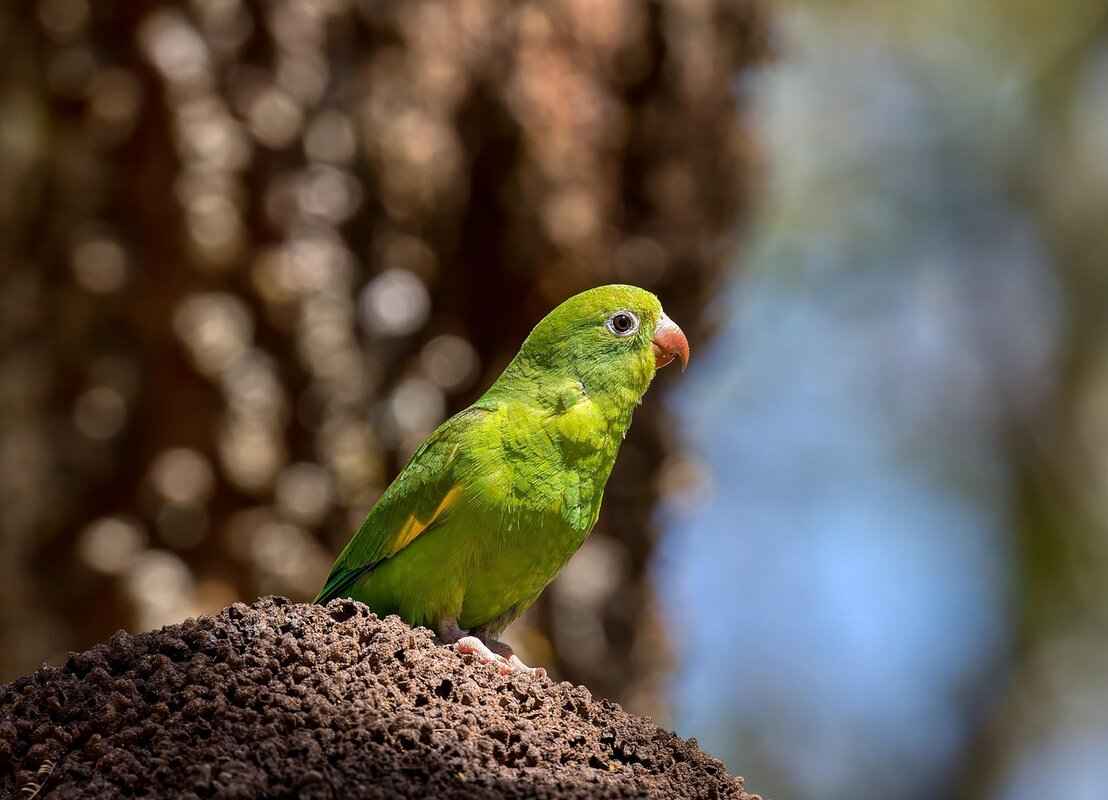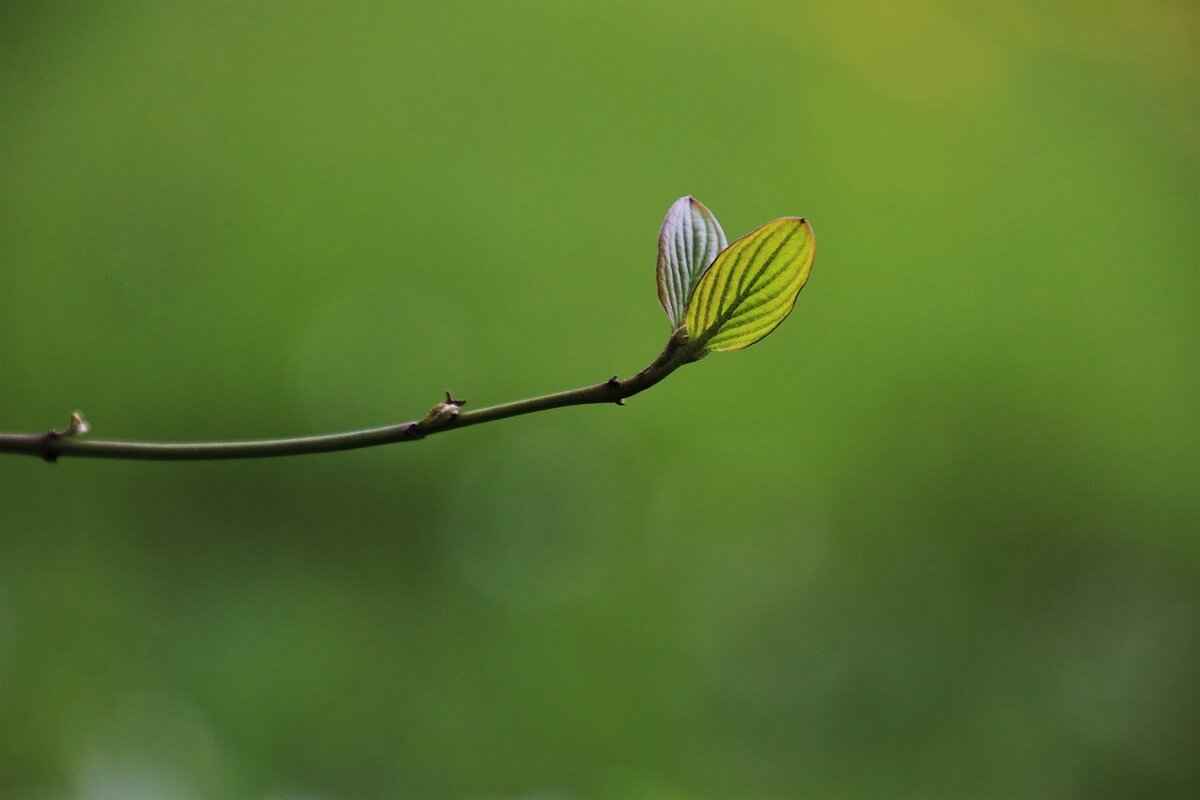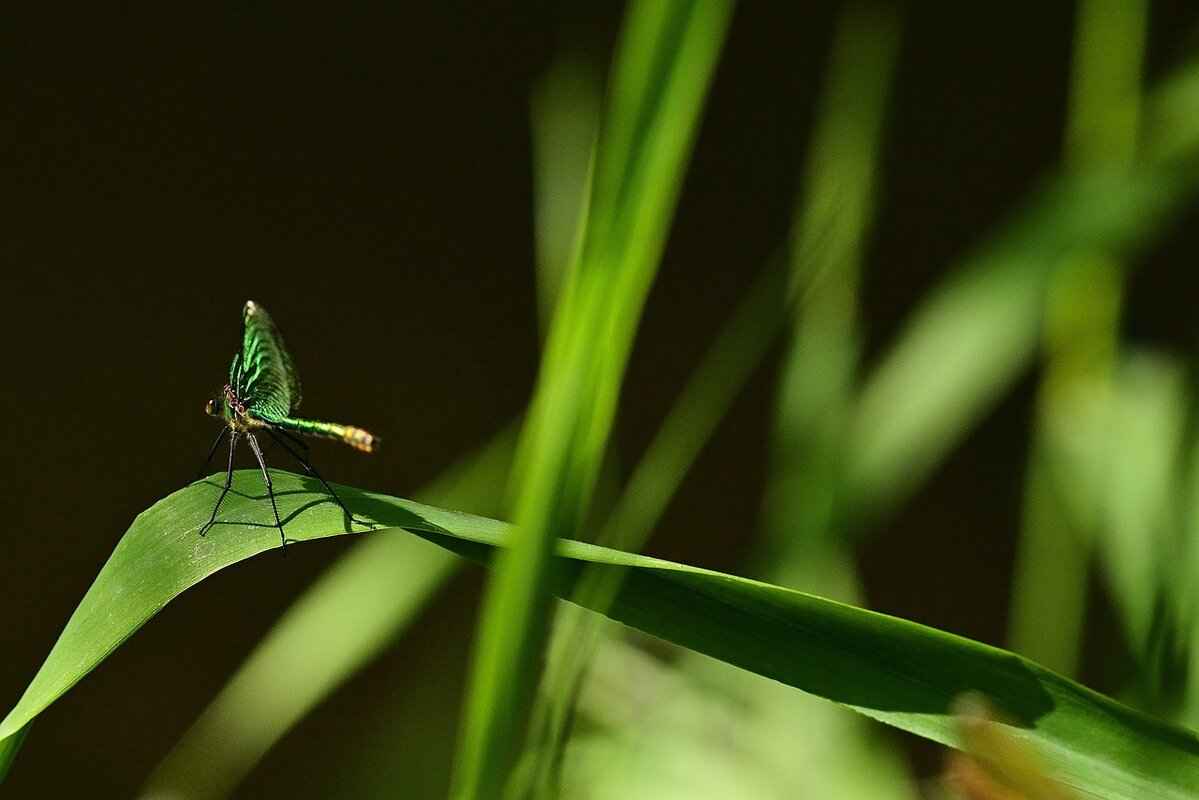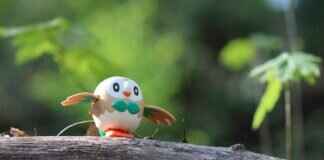This article delves into the most unforgettable and steamy sex scenes featuring Eva Green, highlighting her exceptional talent and magnetic allure that have enchanted viewers globally.
Why Eva Green is a Sensational Actress
Known for her captivating performances, Eva Green has carved a niche for herself as a versatile actress. Her ability to portray complex characters adds significant depth to her roles, making her unforgettable in both mainstream and indie films. With a unique blend of beauty and talent, she has garnered critical acclaim and a devoted fanbase.
Exploring the Allure of Eva Green
Eva Green’s distinctive charm and enigmatic presence draw viewers in like a moth to a flame. Her striking features, combined with intense performances, allow her to embody a wide range of characters. This versatility makes her one of the most sought-after actresses in contemporary cinema, as she effortlessly transitions between genres, captivating audiences with her every move.
The Impact of Eva Green’s Sex Scenes on Film
Eva Green’s sex scenes serve as pivotal moments in her films, enhancing character development and adding narrative depth. These scenes often challenge societal norms and push the boundaries of cinematic storytelling, inviting viewers to engage with complex themes of love, desire, and vulnerability. Her performances invite audiences to reflect on their own perceptions of intimacy and relationships.
Breaking Taboos in Cinema
Green’s willingness to engage in daring scenes has played a crucial role in breaking taboos in film. Her performances often delve into themes of sexuality, power, and vulnerability, encouraging audiences to confront their own beliefs and biases. This courage not only elevates her performances but also sparks important conversations about the representation of sexuality in cinema.
Realism vs. Fantasy in Her Scenes
The realism in Eva Green’s sex scenes blurs the line between fantasy and reality. This authenticity resonates with audiences, making her performances relatable and impactful. By portraying intimate moments with genuine emotion, she invites viewers to connect with her characters on a deeper level, enhancing the overall cinematic experience.
Character Development through Intimacy
Intimate scenes featuring Eva Green often reveal crucial aspects of her characters, providing insights into their motivations, desires, and emotional states. These moments enrich the overall narrative, allowing audiences to understand the complexities of her roles. Through these portrayals, Green demonstrates how intimacy can serve as a powerful narrative device.
Public Reception of Eva Green’s Bold Choices
The public’s reaction to Eva Green’s bold choices in her roles has been mixed. While many praise her fearlessness and commitment to her craft, others critique the explicit nature of her scenes. This dichotomy highlights the ongoing discourse surrounding sexuality in film, showcasing the challenges actresses face in navigating societal expectations while remaining true to their artistic vision.
Iconic Sex Scenes in Eva Green’s Filmography
Several of Eva Green’s films feature iconic sex scenes that have become defining moments in her career. These scenes showcase her ability to blend sensuality with storytelling effectively, leaving a lasting impact on audiences.
“The Dreamers”: A Controversial Classic
In “The Dreamers,” Eva Green’s portrayal of a young woman exploring her sexuality in a politically charged environment is both provocative and poignant. This film marked a significant moment in her career, establishing her as an actress unafraid to tackle controversial subjects.
“Casino Royale”: A Game-Changing Role
Her role as Vesper Lynd in “Casino Royale” introduced a new level of complexity to the Bond girl archetype. The unforgettable love scene redefined intimacy in action films, showcasing Green’s ability to convey deep emotional connections amidst high-stakes drama.
The Artistic Direction Behind Her Scenes
The direction and cinematography of Eva Green’s sex scenes play a crucial role in their impact. Combining visual artistry with emotional depth, these scenes create unforgettable moments that resonate with viewers.
Cinematography Techniques that Enhance Intimacy
The use of lighting, camera angles, and framing in Eva Green’s scenes often enhances the emotional weight and intimacy of the moment. These techniques elevate the viewer’s experience, allowing them to feel the raw emotions conveyed through her performances.
Collaboration with Renowned Directors
Eva Green’s collaborations with acclaimed directors have resulted in some of her most memorable scenes. Their artistic vision complements her talent, creating a synergy that captivates audiences and leaves a lasting impression.
The Cultural Significance of Eva Green’s Performances
Eva Green’s performances challenge and reflect societal norms regarding sexuality, identity, and femininity. As an important figure in contemporary cinema, she sparks critical discussions about the representation of women and sexuality in film.
Redefining Femininity in Film
Through her roles, Eva Green redefines traditional notions of femininity. She portrays strong, complex women who embrace their sexuality and autonomy in a male-dominated industry, paving the way for future generations of actresses.
Influence on Future Generations of Actresses
Eva Green’s bold choices and powerful performances serve as an inspiration for future generations of actresses. By encouraging them to explore diverse and challenging roles, she helps to shape a more inclusive and representative film industry.

Why Eva Green is a Sensational Actress
Eva Green has captivated audiences with her remarkable performances, establishing herself as a sensational actress in both mainstream and independent cinema. Her ability to immerse herself in complex characters is unparalleled, making her a standout figure in the film industry. This article delves into the various aspects that contribute to her status as an exceptional actress.
Eva Green’s journey in the entertainment industry began with her striking debut in “The Dreamers”, where she showcased her willingness to tackle challenging roles. This bold choice set the tone for her career, demonstrating her commitment to exploring the depths of human emotion and sexuality. Her performances are often marked by a unique blend of vulnerability and strength, allowing her to resonate with audiences on multiple levels.
One of the key factors that make Eva Green a sensational actress is her versatility. She effortlessly transitions between genres, from thrilling action films like “Casino Royale” to haunting dramas like “Penny Dreadful”. This adaptability not only highlights her range but also underscores her dedication to her craft. In each role, she brings a distinct energy and perspective, ensuring that her characters are not only memorable but also relatable.
Moreover, Eva Green’s charisma and enigmatic presence contribute significantly to her appeal. Her striking features, combined with her intense gaze, create a magnetic aura that draws viewers in. This unique charm allows her to portray characters that are both complex and compelling, making her performances a visual and emotional feast. Whether she is playing a femme fatale or a tortured soul, Eva Green’s ability to embody her characters is nothing short of extraordinary.
Furthermore, her willingness to embrace controversial themes and push boundaries in her roles sets her apart from many of her contemporaries. By tackling subjects that challenge societal norms, she invites audiences to explore deeper conversations about sexuality, identity, and power dynamics. This fearless approach not only enriches her performances but also elevates the narratives she is a part of, making them more impactful and thought-provoking.
In addition to her on-screen talent, Eva Green’s collaboration with esteemed directors has played a crucial role in shaping her career. Working with visionaries like Tim Burton and Bernardo Bertolucci has allowed her to delve into unique storytelling styles, enhancing her artistic expression. These collaborations often result in visually stunning films that are as much about the aesthetic as they are about the narrative, further solidifying her status as a leading actress.
In summary, Eva Green’s status as a sensational actress is attributed to her versatility, charisma, and willingness to explore complex themes. Her ability to connect with audiences through her performances, combined with her collaborations with renowned directors, has solidified her place in contemporary cinema. As she continues to challenge herself and take on diverse roles, it is clear that Eva Green will remain a significant figure in the film industry for years to come.

Exploring the Allure of Eva Green
Eva Green is an actress whose allure and charm have captivated audiences worldwide. With her striking features and intense performances, she has established herself as a significant figure in contemporary cinema. This article delves into the various aspects that contribute to her unique appeal and the impact she has made in the film industry.
Eva Green’s enigma lies not only in her physical beauty but also in her ability to embody a wide range of characters. Her versatility is evident in films spanning various genres, from fantasy to thrillers. This adaptability allows her to connect with a diverse audience, drawing viewers into the worlds she creates on screen.
One of the most striking elements of Eva Green’s performances is her emotional depth. She possesses an uncanny ability to convey complex emotions, often portraying characters that are both vulnerable and powerful. This duality resonates with audiences, making her roles memorable and impactful. For instance, in films like The Dreamers and Casino Royale, Green’s characters navigate intricate emotional landscapes, inviting viewers to explore themes of love, betrayal, and identity.
- Striking Features: Eva Green’s unique features, characterized by her piercing green eyes and dark hair, contribute to her enigmatic presence. This striking appearance has made her a favorite among directors and casting agents.
- Intense Performances: Her ability to immerse herself in her roles allows her to portray complex characters with authenticity, making her performances both captivating and relatable.
- Versatile Roles: From playing a seductive witch in Penny Dreadful to a fearless spy in Casino Royale, Green’s range is impressive, showcasing her talent and adaptability.
Moreover, Eva Green’s on-screen presence is often described as magnetic. She has a way of drawing viewers into her performances, making them feel as if they are part of the story. This quality is particularly evident in her intimate scenes, where her vulnerability and strength coexist, creating a powerful dynamic that enhances the narrative.
In addition to her acting prowess, Green’s fashion sense and style further amplify her allure. Known for her bold fashion choices, she often graces red carpets in stunning gowns that reflect her personality—mysterious, elegant, and a touch daring. This visual appeal complements her performances, creating a cohesive image that resonates with fans and critics alike.
As an actress, Eva Green has not only entertained but also challenged societal norms regarding femininity and sexuality. Her roles often explore themes that provoke thought and discussion, encouraging audiences to reflect on their perceptions of women in film. This willingness to tackle controversial subjects has solidified her status as a modern icon in the entertainment industry.
In summary, Eva Green’s allure is a multifaceted phenomenon that encompasses her striking features, emotional depth, and fearless approach to acting. Her ability to captivate audiences through a range of complex characters has made her one of the most sought-after actresses of our time. As she continues to take on diverse roles, it is clear that Eva Green’s impact on cinema will endure, leaving a lasting impression on both audiences and aspiring actors alike.

The Impact of Eva Green’s Sex Scenes on Film
Eva Green has become synonymous with powerful and provocative performances in contemporary cinema. Among her many talents, her ability to portray intimacy on screen stands out, particularly through her sex scenes. These moments are not merely for shock value; they often serve as critical junctures in her films, enriching character arcs and narrative depth.
Eva Green’s sex scenes often challenge conventional portrayals of intimacy in cinema. They are not just physical encounters; they are nuanced expressions of emotion, vulnerability, and power dynamics. By engaging in these scenes, Green invites the audience to explore the complexities of her characters, revealing layers of their personalities that may not be apparent in dialogue alone.
In films like The Dreamers and Casino Royale, her intimate moments are pivotal to the story. For instance, in The Dreamers, her character navigates a landscape of sexual exploration intertwined with political upheaval. This setting creates a backdrop where her sexual encounters become a metaphor for freedom and rebellion, challenging societal norms. Such scenes push audiences to confront their own perceptions of sexuality and the societal taboos surrounding it.
Moreover, Green’s performances often blur the lines between realism and fantasy. The authenticity she brings to her roles allows viewers to resonate with her characters on a deeper level. This realism is crucial in making her scenes impactful, as they evoke genuine emotional responses rather than mere titillation. The rawness of her portrayals invites audiences to engage with the characters’ emotional journeys, making the intimate moments feel essential to the overall narrative.
Green’s willingness to embrace explicit material also sparks conversations about gender dynamics in film. Her roles often depict women who are not merely objects of desire but complex individuals with their own motivations and desires. This shift in representation is significant in an industry that has historically marginalized female perspectives. By portraying strong, multifaceted women, Green contributes to a broader discourse on femininity and sexuality in cinema.
The public’s reaction to her bold choices varies widely. While some applaud her fearlessness and artistic integrity, others critique the explicit nature of her scenes. This division highlights the ongoing debate about the portrayal of sexuality in film and the cultural implications of such representations. Green’s work invites audiences to engage with these discussions, prompting them to reflect on their own views regarding intimacy and representation in media.
In summary, Eva Green’s sex scenes are integral to her films, serving as crucial elements that enhance character development and narrative depth. They challenge societal norms and offer a fresh perspective on intimacy, making her one of the most compelling actresses of her generation. Through her bold choices, Green continues to push the boundaries of cinematic storytelling, inviting audiences to explore the complexities of human relationships.
Breaking Taboos in Cinema
Eva Green has emerged as a transformative figure in modern cinema, particularly through her willingness to tackle daring and provocative scenes. This bold approach has not only redefined the boundaries of film but has also challenged audiences to confront their own perceptions of sexuality and intimacy. Her performances often delve into deep themes of sexuality, power, and vulnerability, allowing viewers to engage with complex narratives that resonate on multiple levels.
- Redefining Sexuality: Eva Green’s roles frequently explore the multifaceted nature of sexuality. By portraying characters that embrace their desires and confront societal norms, she invites audiences to reflect on their own beliefs about intimacy and personal freedom.
- Power Dynamics: In many of her performances, Green showcases the intricate power dynamics present in relationships. Her characters often navigate situations where power is fluid, challenging traditional gender roles and expectations.
- Vulnerability: Green’s ability to convey vulnerability adds a layer of authenticity to her performances. This emotional depth allows audiences to connect with her characters on a personal level, making their journeys more impactful.
Eva Green’s willingness to engage in explicit scenes has sparked significant discussions in the film industry. Critics and audiences alike have debated the appropriateness of such portrayals, often leading to a broader conversation about the representation of women in cinema. By taking on these roles, Green has become a catalyst for change, pushing the envelope on what is considered acceptable in mainstream film.
| Film | Context of Daring Scene | Impact |
|---|---|---|
| The Dreamers | Exploration of sexuality in a politically charged environment | Provoked discussions on sexual liberation and taboo |
| Casino Royale | Complex love scene that redefined the Bond girl | Set a new standard for intimacy in action films |
The impact of Eva Green’s daring choices extends beyond her filmography. She has inspired a new generation of actresses to embrace their sexuality and challenge the status quo. This shift is crucial in an industry that has historically marginalized women’s voices and experiences. By portraying strong, nuanced characters, Green has opened up pathways for future talent to explore diverse narratives that reflect the complexities of modern womanhood.
In conclusion, Eva Green’s contributions to cinema are significant not only for their artistic merit but also for their cultural implications. Through her fearless performances, she has broken taboos and invited audiences to engage in meaningful conversations about sexuality, power, and identity. Her work serves as a powerful reminder of the importance of representation in film and the ongoing evolution of storytelling in the cinematic landscape.
Realism vs. Fantasy in Her Scenes
Eva Green has consistently pushed the boundaries of cinematic storytelling, particularly through her captivating sex scenes. These moments are not merely for titillation; they serve as a profound exploration of human emotions and relationships. The realism embedded in her performances often blurs the line between fantasy and reality, creating a deeply immersive experience for the audience.
One of the key aspects of Eva Green’s approach to her roles is her ability to embody the complexities of her characters. In films like The Dreamers and Casino Royale, her intimate scenes are crafted with a level of authenticity that resonates on an emotional level. This authenticity is not just about the physicality of the scenes; it’s about the emotional connection that she establishes with her co-stars and the audience. Green’s performances invite viewers to step into the characters’ shoes, experiencing their desires, vulnerabilities, and passions.
In The Dreamers, for instance, Green’s portrayal of a young woman exploring her sexuality amidst the backdrop of political unrest is both provocative and poignant. The scenes are charged with a sense of realism that reflects the tumultuous nature of adolescence and the quest for identity. This film, while controversial, showcases how Green’s performances can challenge societal norms and push the boundaries of what is considered acceptable in cinema.
Similarly, in Casino Royale, her role as Vesper Lynd redefines the traditional notion of a Bond girl. The love scene between her and James Bond is not just a moment of physical intimacy; it is a turning point in the narrative that adds layers to both characters. The cinematography and direction enhance this realism, making the audience feel the weight of their connection. The interplay of light and shadow, along with close-up shots, captures the raw emotions, allowing viewers to experience the tension and vulnerability present in that moment.
Moreover, Green’s willingness to embrace her sexuality on screen invites audiences to confront their own perceptions of intimacy and desire. The realism in her performances does not shy away from the complexities of sexual relationships, including themes of power, consent, and emotional depth. This approach challenges the often superficial portrayal of sex in film, encouraging a deeper understanding of the characters’ motivations and the societal contexts in which they exist.
By blurring the lines between fantasy and reality, Eva Green’s sex scenes become a crucial part of her storytelling arsenal. They are not merely plot devices; they are integral to character development and the overall narrative arc. Her ability to convey genuine emotion through these intimate moments is what sets her apart as an actress. Audiences are left feeling as though they have witnessed something profoundly real, rather than a scripted performance.
In conclusion, Eva Green’s sex scenes exemplify how realism can coexist with fantasy in cinema. Her performances resonate with viewers, making them not just observers but participants in the emotional landscape of her characters. This unique blend of authenticity and artistry solidifies her status as one of the most compelling actresses in contemporary film.
Character Development through Intimacy
In the realm of cinema, intimate scenes often serve as crucial turning points for character development. Eva Green, known for her compelling performances, uses these moments to delve deep into the psyche of her characters, revealing their inner struggles, desires, and vulnerabilities. By examining her roles, we can understand how intimacy not only enhances storytelling but also enriches the audience’s connection to the characters.
Intimacy in film is not merely about physicality; it is a powerful narrative device that can convey a character’s emotional state and evolution. In many of Eva Green’s films, these intimate scenes are pivotal, offering insights that dialogue alone cannot express. For instance, in The Dreamers, Green’s character navigates a complex web of emotions amidst a politically charged backdrop. The intimate scenes serve as a reflection of her character’s awakening and self-discovery, allowing the audience to witness her transformation firsthand.
Moreover, the emotional weight carried by these scenes often transcends the immediate context, resonating with viewers on a personal level. In her portrayal of Vesper Lynd in Casino Royale, Green’s intimate moments with James Bond not only highlight her character’s allure but also reveal her conflicting loyalties and deep-seated fears. The tension between desire and vulnerability becomes palpable, inviting the audience to empathize with her plight.
- Motivations: Intimate scenes often illuminate a character’s motivations, providing context for their actions. Eva Green’s characters frequently navigate complex emotional landscapes, and these moments serve as a window into their driving forces.
- Desires: The exploration of desire is another critical aspect of character development. Green’s performances often showcase the tension between personal desires and societal expectations, making her characters relatable and multifaceted.
- Emotional States: Intimacy allows for a raw portrayal of emotional states. Green’s ability to convey a spectrum of feelings—from joy to despair—during these scenes enhances the authenticity of her characters.
Furthermore, the way intimacy is portrayed in Green’s films often challenges traditional narratives around sexuality and relationships. Her willingness to embrace complex, sometimes controversial scenes invites viewers to reconsider their perceptions of intimacy. This is particularly significant in a landscape where female characters are often relegated to simplistic roles. Green’s performances push the boundaries, offering a more nuanced portrayal of women’s experiences.
In summary, Eva Green’s intimate scenes are not just about physical connection; they are integral to understanding her characters’ journeys. By revealing their motivations, desires, and emotional states, these moments enrich the narrative and foster a deeper connection with the audience. Through her fearless portrayal of intimacy, Green continues to redefine character development in contemporary cinema, making her performances both compelling and thought-provoking.
Public Reception of Eva Green’s Bold Choices
The public’s reaction to Eva Green‘s bold choices in her roles has been a topic of considerable debate and discussion. This actress is known for her fearless approach to portraying complex characters, often involving intimate and explicit scenes. While many applaud her for her fearlessness and artistic integrity, others express discomfort regarding the explicit nature of some of her performances. This dichotomy reflects a broader discourse surrounding sexuality in film, where the boundaries of artistic expression and societal norms are continually tested.
Eva Green’s career has been marked by a series of daring roles that often push the envelope. Critics and audiences alike have had varied responses to her performances. Some viewers celebrate her courage to explore themes of sexuality and vulnerability, viewing her work as a necessary challenge to traditional cinematic norms. On the other hand, there are those who argue that certain scenes are too explicit, detracting from the narrative and potentially alienating some audience members.
The ongoing debate about Eva Green’s roles raises important questions about the nature of artistry in film. Are her bold choices a form of artistic expression, or do they verge on sensationalism? Supporters argue that her performances are integral to character development and storytelling, allowing for a deeper exploration of human emotions and relationships. Detractors, however, feel that the explicit nature of some scenes may overshadow the plot, reducing them to mere spectacle.
Eva Green’s work has undoubtedly contributed to the evolving conversation about sexuality in cinema. Her willingness to engage in provocative scenes has sparked discussions about the representation of women and the portrayal of sexuality on screen. By challenging conventional portrayals, Green encourages audiences to reflect on their own perceptions of intimacy and desire. This has led to a broader dialogue about the role of sex in film and how it can be used to enhance narratives rather than detract from them.
Despite the mixed reactions, Eva Green’s contributions to film are significant. She has become a trailblazer for actresses who wish to embrace their sexuality and explore complex roles without fear of judgment. Her performances often resonate with audiences, prompting them to confront their own biases and assumptions about female sexuality in cinema. As societal norms continue to evolve, Green’s work remains relevant, pushing boundaries and inspiring future generations of actors and filmmakers.
In conclusion, the public’s reception of Eva Green’s bold choices illustrates the complexities of viewing sexuality in film. While some may critique her explicit scenes, many recognize the artistic merit and the important conversations they foster. As an actress who continuously challenges the status quo, Eva Green will likely remain a pivotal figure in discussions about sexuality, femininity, and the power of storytelling in contemporary cinema.

Iconic Sex Scenes in Eva Green’s Filmography
Eva Green has made a significant mark in the film industry, particularly through her daring and memorable performances that often feature **iconic sex scenes**. These scenes not only serve as pivotal moments in her films but also showcase her unique ability to intertwine **sensuality with storytelling**. In this exploration, we delve into some of her most notable films that highlight these defining moments, revealing how they contribute to her reputation as a bold and talented actress.
- “The Dreamers”: A Provocative Exploration of Youth and Desire
- “Casino Royale”: Redefining the Bond Girl Archetype
- “Penny Dreadful”: A Dark and Intimate Portrayal
- “300: Rise of an Empire”: Power and Seduction in a Historical Context
“The Dreamers”: A Provocative Exploration of Youth and Desire
In Bernardo Bertolucci’s “The Dreamers,” Eva Green plays the role of **Eva**, a young woman navigating her sexuality amidst the backdrop of political upheaval in 1968 Paris. The film is renowned for its **bold sexual content**, which is not merely gratuitous but serves to illustrate the characters’ exploration of freedom and identity. Green’s performance is both passionate and vulnerable, drawing viewers into a world where intimacy is intertwined with self-discovery. The scenes are shot with a raw authenticity that challenges conventional narratives about youth and sexuality, making it a landmark film in her career.
“Casino Royale”: Redefining the Bond Girl Archetype
In “Casino Royale,” Eva Green’s portrayal of **Vesper Lynd** revolutionized the traditional Bond girl role. The film features a memorable love scene that is both sensual and emotionally charged, showcasing the complexities of her character. Unlike previous portrayals, Vesper is not just a love interest; she is a fully realized character with her own motivations and vulnerabilities. This scene, set against the high-stakes world of espionage, emphasizes the emotional connection between Bond and Vesper, elevating the narrative and setting a new standard for intimacy in action films.
“Penny Dreadful”: A Dark and Intimate Portrayal
In the TV series “Penny Dreadful,” Eva Green takes on the role of **Vanessa Ives**, a medium grappling with her own demons. The series is known for its gothic atmosphere and intense character dynamics, and Green’s intimate scenes are crucial in revealing her character’s struggles with love, power, and vulnerability. The chemistry between Vanessa and other characters is palpable, and the scenes are crafted to evoke a sense of both desire and despair, making them memorable and impactful. Green’s ability to convey deep emotional complexity through these scenes further cements her status as a remarkable actress.
“300: Rise of an Empire”: Power and Seduction in a Historical Context
In “300: Rise of an Empire,” Eva Green portrays **Artemisia**, a fierce and cunning naval commander. The film features several striking scenes that blend **seduction with power**, illustrating Artemisia’s role as a formidable antagonist. Green’s performance is both captivating and intimidating, as she navigates her character’s sexuality and ambition. The cinematography enhances the intensity of these moments, making them visually stunning while also serving to deepen the narrative. Green’s portrayal challenges the traditional representations of women in historical epics, showcasing strength and sensuality in tandem.
By examining these iconic sex scenes in Eva Green’s filmography, it becomes evident that they are not merely sensational but serve to enrich the narrative and character development. Her ability to blend **sensuality with storytelling** has left audiences captivated, solidifying her status as one of the most talented actresses of her generation. Each scene is a testament to her skill, pushing boundaries and redefining the roles of women in cinema.
“The Dreamers”: A Controversial Classic
is a film that remains etched in the annals of cinema for its audacious exploration of sexuality and political unrest. Directed by Bernardo Bertolucci, this 2003 film is set against the backdrop of the 1968 Paris student riots, a time of significant upheaval and transformation. Eva Green’s portrayal of Matthew’s enigmatic sister, Isabelle, is a pivotal aspect of the film, as she navigates her burgeoning sexuality amidst a politically charged atmosphere.
In “The Dreamers,” Eva Green’s character is not just a reflection of youthful exploration but also a symbol of rebellion against societal norms. Her interactions with the main characters, Matthew and Theo, serve as a conduit for expressing desires that challenge traditional boundaries. This dynamic creates a compelling narrative that resonates with audiences, making them question the nature of intimacy and the societal constraints surrounding it.
The film’s explicit scenes have sparked considerable debate, with some praising its candid approach to sexuality while others criticize it for being gratuitous. However, it is essential to recognize that these moments are integral to character development. They reveal the complexities of Isabelle’s character, showcasing her vulnerability, desires, and the impact of her environment on her choices. This layered portrayal invites viewers to engage with the characters on a deeper level, fostering empathy and understanding.
Moreover, the cinematography in “The Dreamers” plays a crucial role in enhancing the emotional weight of the scenes. The use of natural lighting and intimate camera angles creates a sense of realism that immerses the audience in the characters’ experiences. This artistic direction not only amplifies the sensuality of the moments but also underscores the emotional stakes involved, making each scene feel authentic and impactful.
It is also important to consider the historical context in which the film was released. The early 2000s were a period marked by a resurgence of interest in sexual liberation and the questioning of societal norms. “The Dreamers” taps into this zeitgeist, offering a narrative that challenges viewers to confront their perceptions of sexuality and freedom. Eva Green’s performance, in particular, stands out as a bold statement in a time when such themes were becoming increasingly relevant.
Furthermore, the film’s legacy continues to influence contemporary cinema. Eva Green’s performance has inspired a generation of actresses to embrace complex roles that explore the intricacies of female sexuality and autonomy. By portraying a character who is unapologetically herself, Green has contributed to a broader dialogue about the representation of women in film—a conversation that remains vital today.
In conclusion, “The Dreamers” is more than just a film with provocative scenes; it is a rich tapestry of political and personal exploration. Eva Green’s portrayal of Isabelle is a defining moment in her career, showcasing her ability to convey deep emotional truths through her performances. As audiences continue to engage with this film, it serves as a reminder of the power of cinema to challenge norms and provoke thought.
“Casino Royale”: A Game-Changing Role
This article explores the most memorable and sizzling sex scenes featuring Eva Green, showcasing her talent and allure that have captivated audiences around the world.
Eva Green has established herself as a versatile actress known for her captivating performances. Her ability to portray complex characters adds depth to her roles, making her memorable in both mainstream and indie films.
Eva Green’s unique charm and enigmatic presence draw viewers in. Her striking features and intense performances allow her to embody a range of characters, making her one of the most sought-after actresses in contemporary cinema.
Eva Green’s sex scenes often serve as pivotal moments in her films, enhancing character development and narrative depth. They challenge societal norms and push the boundaries of cinematic storytelling.
Eva Green’s willingness to engage in daring scenes has helped break taboos in film. Her performances often explore themes of sexuality, power, and vulnerability, inviting audiences to confront their own perceptions.
The realism in Eva Green’s sex scenes often blurs the line between fantasy and reality. This authenticity resonates with audiences, making her performances relatable and impactful.
Intimate scenes featuring Eva Green often reveal crucial aspects of her characters. These moments provide insights into their motivations, desires, and emotional states, enriching the overall narrative.
The public’s reaction to Eva Green’s bold choices in her roles has been mixed, with some praising her fearlessness while others critique the explicit nature of her scenes. This dichotomy highlights the ongoing discourse around sexuality in film.
Several of Eva Green’s films feature iconic sex scenes that have become defining moments in her career, showcasing her ability to blend sensuality with storytelling effectively.
In “The Dreamers,” Eva Green’s portrayal of a young woman exploring her sexuality in a politically charged environment is both provocative and poignant, marking a significant moment in her career.
Her role as Vesper Lynd in “Casino Royale” introduced a new level of complexity to the Bond girl archetype. This character was not merely a love interest but a multifaceted individual with her own motives and vulnerabilities. The film featured an unforgettable love scene that redefined intimacy in action films, showcasing a relationship that was both passionate and fraught with tension.
In this pivotal scene, the emotional connection between James Bond and Vesper Lynd is palpable. The filmmakers chose to focus on emotional depth rather than gratuitous physicality, allowing audiences to witness a bond that transcends the typical tropes associated with Bond girls. The cinematography and direction captured the essence of their relationship, making the scene memorable and impactful.
Moreover, this portrayal challenged the traditional portrayal of women in action films, presenting Vesper as a character who is both strong and vulnerable. This complexity resonated with viewers, paving the way for future films to explore similar themes. The balance of intimacy and action in “Casino Royale” has since influenced how relationships are depicted in the genre, emphasizing that emotional connections can coexist with thrilling narratives.
The direction and cinematography of Eva Green’s sex scenes often play a crucial role in their impact, combining visual artistry with emotional depth to create unforgettable moments.
The use of lighting, camera angles, and framing in Eva Green’s scenes often enhances the emotional weight and intimacy of the moment, elevating the viewer’s experience.
Eva Green’s collaborations with acclaimed directors have resulted in some of her most memorable scenes. Their artistic vision complements her talent, creating a synergy that captivates audiences.
Eva Green’s performances challenge and reflect societal norms regarding sexuality, identity, and femininity, making her an important figure in contemporary cinema and cultural discourse.
Through her roles, Eva Green redefines traditional notions of femininity, portraying strong, complex women who embrace their sexuality and autonomy in a male-dominated industry.
Eva Green’s bold choices and powerful performances serve as an inspiration for future generations of actresses, encouraging them to explore diverse and challenging roles within the film industry.

The Artistic Direction Behind Her Scenes
Eva Green’s Hottest Sex Scenes That Left Audiences Speechless
This article explores the most memorable and sizzling sex scenes featuring Eva Green, showcasing her talent and allure that have captivated audiences around the world.
Why Eva Green is a Sensational Actress
Eva Green has established herself as a versatile actress known for her captivating performances. Her ability to portray complex characters adds depth to her roles, making her memorable in both mainstream and indie films.
Exploring the Allure of Eva Green
Eva Green’s unique charm and enigmatic presence draw viewers in. Her striking features and intense performances allow her to embody a range of characters, making her one of the most sought-after actresses in contemporary cinema.
The Impact of Eva Green’s Sex Scenes on Film
Eva Green’s sex scenes often serve as pivotal moments in her films, enhancing character development and narrative depth. They challenge societal norms and push the boundaries of cinematic storytelling.
Breaking Taboos in Cinema
Eva Green’s willingness to engage in daring scenes has helped break taboos in film. Her performances often explore themes of sexuality, power, and vulnerability, inviting audiences to confront their own perceptions.
Realism vs. Fantasy in Her Scenes
The realism in Eva Green’s sex scenes often blurs the line between fantasy and reality. This authenticity resonates with audiences, making her performances relatable and impactful.
Character Development through Intimacy
Intimate scenes featuring Eva Green often reveal crucial aspects of her characters. These moments provide insights into their motivations, desires, and emotional states, enriching the overall narrative.
Public Reception of Eva Green’s Bold Choices
The public’s reaction to Eva Green’s bold choices in her roles has been mixed, with some praising her fearlessness while others critique the explicit nature of her scenes. This dichotomy highlights the ongoing discourse around sexuality in film.
Iconic Sex Scenes in Eva Green’s Filmography
Several of Eva Green’s films feature iconic sex scenes that have become defining moments in her career, showcasing her ability to blend sensuality with storytelling effectively.
“The Dreamers”: A Controversial Classic
In “The Dreamers,” Eva Green’s portrayal of a young woman exploring her sexuality in a politically charged environment is both provocative and poignant, marking a significant moment in her career.
“Casino Royale”: A Game-Changing Role
Her role as Vesper Lynd in “Casino Royale” introduced a new level of complexity to the Bond girl archetype, with an unforgettable love scene that redefined intimacy in action films.
The direction and cinematography of Eva Green’s sex scenes often play a crucial role in their impact, combining visual artistry with emotional depth to create unforgettable moments. The meticulous attention to detail in these scenes is what sets them apart, ensuring that they resonate with viewers on multiple levels.
One of the key elements in the artistic direction of these scenes is the use of lighting. Soft, diffused lighting can create a romantic atmosphere, while sharper contrasts can heighten tension and intimacy. Directors often collaborate closely with cinematographers to select the right lighting techniques that not only enhance the visual appeal but also reflect the emotional state of the characters involved. For instance, in “The Dreamers,” the interplay of light and shadow effectively conveys the characters’ complex emotions, making the scenes more impactful.
Another important aspect is the camera angles used during these intimate moments. Close-ups can capture the subtle expressions of the actors, allowing the audience to connect with their emotional journeys. Wide shots, on the other hand, can provide context and showcase the environment, adding layers to the narrative. The choice of angles can significantly influence how the audience perceives the scene, making it feel either more personal or more expansive.
Additionally, the framing of each shot is crucial in conveying the dynamics between characters. Directors often use framing techniques to emphasize power dynamics or emotional connections, guiding the audience’s focus and interpretation. For example, in her scenes with Daniel Craig in “Casino Royale,” the framing accentuates the tension and chemistry between their characters, making their interactions even more compelling.
Collaboration with renowned directors is also fundamental in shaping the artistic direction of Eva Green’s sex scenes. Directors like Bernardo Bertolucci and Martin Campbell have a distinct vision that complements Green’s performances, resulting in scenes that are both aesthetically pleasing and narratively rich. Their artistic choices not only highlight Green’s talents but also elevate the overall quality of the film.
In conclusion, the artistic direction behind Eva Green’s sex scenes is a blend of thoughtful cinematography, strategic lighting, and effective collaboration with directors. This combination results in moments that are not only visually stunning but also emotionally resonant, ultimately contributing to her status as one of cinema’s most captivating actresses.
Cinematography Techniques that Enhance Intimacy
The art of cinematography plays a pivotal role in shaping the emotional landscape of film, particularly in intimate scenes. In the case of Eva Green, her performances are often elevated by the meticulous use of lighting, camera angles, and framing. These techniques not only enhance the visual appeal but also deepen the emotional connection between the characters and the audience.
Lighting: Setting the Mood
Lighting is one of the most crucial elements in cinematography that can transform a scene. In Eva Green’s intimate moments, soft and diffused lighting is frequently employed to create a warm and inviting atmosphere. This technique softens harsh shadows, allowing the viewer to focus on the subtle expressions and emotions conveyed by her character. The gentle glow often highlights her features, accentuating her beauty while simultaneously fostering a sense of vulnerability. The interplay of light and shadow can also evoke a sense of mystery, drawing the audience deeper into the narrative.
Camera Angles: Creating Connection
Camera angles significantly influence how audiences perceive a scene. Low-angle shots can empower a character, while high-angle shots may evoke feelings of vulnerability or submission. In Eva Green’s scenes, the use of close-ups is particularly effective. These shots allow viewers to engage with her character on a personal level, capturing the nuances of her expressions and emotions. The intimacy created by these angles fosters a deeper connection, making the viewer feel as if they are part of the moment rather than mere observers.
Framing: Focusing on Emotion
Framing is another essential technique that helps to convey the emotional weight of a scene. By using tight framing, filmmakers can isolate characters within their environment, emphasizing their emotional states. In many of Eva Green’s intimate scenes, the framing draws attention to her character’s reactions, allowing the audience to experience the tension and passion that unfolds. This technique often eliminates distractions, ensuring that the viewer’s focus remains on the emotional exchange between the characters.
Symbolism in Cinematography
Beyond technical aspects, the symbolic use of cinematography can also enhance intimacy. For instance, the juxtaposition of light and dark can symbolize the duality of desire and fear in intimate relationships. Eva Green’s scenes often utilize this symbolism to explore complex themes of love, longing, and vulnerability. By incorporating these layers of meaning, the cinematography not only serves the narrative but also invites the audience to reflect on their own experiences with intimacy.
Collaboration with Directors
Eva Green’s ability to convey emotion is further amplified by her collaboration with visionary directors who understand the importance of cinematography in storytelling. These directors often work closely with cinematographers to craft scenes that resonate on multiple levels. The synergy between Green’s performance and the visual storytelling creates a powerful cinematic experience that lingers in the minds of viewers long after the credits roll.
In conclusion, the combination of lighting, camera angles, and framing in Eva Green’s intimate scenes significantly enhances the emotional weight of her performances. These cinematographic techniques not only elevate the storytelling but also create a profound connection between the characters and the audience. Through careful attention to these elements, filmmakers can craft moments that resonate deeply, transforming ordinary scenes into unforgettable cinematic experiences.
Collaboration with Renowned Directors
Eva Green’s artistic journey in cinema is significantly marked by her collaborations with some of the most acclaimed directors in the industry. These partnerships have not only shaped her career but have also resulted in some of the most unforgettable moments on screen. The synergy between Green’s exceptional talent and the visionary styles of these directors creates a compelling narrative that resonates deeply with audiences.
One of the most notable collaborations is with director Bernardo Bertolucci in the film The Dreamers. This film explores themes of sexuality and identity against the backdrop of the 1968 Paris student riots. Green’s portrayal of Eva, a young woman navigating her sexual awakening, is both provocative and poignant. Bertolucci’s direction allows Green to showcase her ability to embody complex emotions, resulting in scenes that are both intimate and thought-provoking. The film itself has been a topic of discussion regarding its bold exploration of sexuality, and Green’s performance remains a standout.
Another significant partnership is with Tim Burton in Dark Shadows. Burton’s unique visual style complements Green’s ethereal presence, allowing her to portray the enigmatic character Angelique with a captivating blend of seduction and menace. The collaboration highlights how Green can adapt to various genres, from horror to comedy, while maintaining her signature allure. Burton’s direction emphasizes the fantastical elements of the story, enhancing Green’s performance and making her character unforgettable.
In Casino Royale, directed by Martin Campbell, Green’s role as Vesper Lynd redefined the archetype of the Bond girl. This collaboration marked a turning point in the portrayal of female characters in action films. Campbell’s focus on character development allowed Green to bring depth to Vesper, making her more than just a love interest. The chemistry between Green and Daniel Craig is palpable, and their intimate scenes are crafted with a level of emotional complexity that elevates the narrative beyond typical action fare.
Furthermore, working with Ridley Scott in Kingdom of Heaven showcases Green’s versatility in a historical context. Her performance as Sybil adds layers to the film’s exploration of faith and power. Scott’s masterful direction allows Green to shine in her role, proving that her talent transcends genres and themes. The film’s cinematography and production design create a visually stunning backdrop for Green’s performance, further enhancing the impact of her character.
Through these collaborations, Eva Green has not only established herself as a formidable actress but has also contributed to the evolution of cinematic narratives. Her ability to connect with directors who share a vision for storytelling has resulted in performances that challenge norms and engage audiences on multiple levels. The artistic vision of her directors, combined with Green’s talent, creates a synergy that captivates viewers and leaves a lasting impression.
In conclusion, Eva Green’s collaborations with renowned directors have significantly influenced her career and the film industry. Each partnership has resulted in memorable performances that resonate with audiences, showcasing her versatility and depth as an actress. As she continues to work with visionary directors, it will be exciting to see how her talent evolves and what new heights she will reach in her career.

The Cultural Significance of Eva Green’s Performances
Eva Green is not just an actress; she is a cultural phenomenon whose performances resonate deeply within the realms of sexuality, identity, and femininity. Her roles often challenge the traditional portrayals of women in cinema, inviting audiences to engage in a broader conversation about societal norms. This article delves into the cultural significance of Eva Green’s performances, examining the layers of meaning behind her work and the impact it has on contemporary film and cultural discourse.
Eva Green’s performances are a reflection of the evolving landscape of femininity in cinema. By taking on roles that are often complex and multifaceted, she challenges the stereotypical images of women that have dominated the film industry for decades. Her characters frequently embody strength, vulnerability, and sexual autonomy, making her a powerful figure in the representation of women on screen.
One of the most significant aspects of Green’s work is her ability to portray sexuality in a way that is both empowering and thought-provoking. In films like “The Dreamers” and “Casino Royale,” she explores the nuances of desire and intimacy, presenting sexuality not merely as an act but as a fundamental aspect of human experience. This portrayal encourages audiences to reconsider their own perceptions of sexuality and the societal taboos that often surround it.
Moreover, Eva Green’s characters often grapple with their identities in ways that resonate with contemporary audiences. Her portrayal of women navigating complex emotional landscapes speaks to the struggles many face in a world that often imposes rigid standards of behavior and appearance. By embracing roles that highlight these struggles, Green contributes to a broader dialogue about identity and the societal pressures that shape it.
In addition to her exploration of identity and sexuality, Green’s performances also challenge traditional notions of femininity. Rather than conforming to the archetype of the passive female, her characters are often depicted as strong, assertive, and unapologetically themselves. This redefinition of femininity is crucial in a film industry that has historically marginalized women’s voices and experiences. Green’s work invites viewers to celebrate female empowerment and autonomy, paving the way for future generations of actresses to embrace similar roles.
Furthermore, the cultural impact of Eva Green’s performances extends beyond the screen. Her willingness to engage in provocative and daring scenes has sparked conversations about the representation of women in media. Critics and audiences alike have debated the implications of her roles, highlighting the ongoing discourse surrounding sexuality, power dynamics, and the portrayal of women in film. This dialogue is essential in understanding how cinema reflects and shapes societal norms.
As an actress, Eva Green serves as a role model for aspiring performers. Her fearless approach to her craft encourages future generations to take on challenging and diverse roles, fostering a more inclusive and representative film industry. By breaking boundaries and defying expectations, she inspires others to explore the depths of their characters and the stories they tell.
In conclusion, Eva Green’s performances hold significant cultural weight in contemporary cinema. By challenging societal norms regarding sexuality, identity, and femininity, she not only captivates audiences but also contributes to an essential dialogue about the representation of women in film. Her work encourages viewers to reflect on their own beliefs and perceptions, making her an indispensable figure in the ongoing evolution of cinematic storytelling.
Redefining Femininity in Film
In the realm of contemporary cinema, Eva Green stands out as a transformative figure, particularly in her approach to femininity. Through her diverse roles, she has successfully challenged and redefined traditional perceptions of what it means to be a woman in film. This article delves into how Green’s characters embody strength, complexity, and autonomy, ultimately reshaping the narrative surrounding femininity in a predominantly male-driven industry.
Eva Green has become synonymous with strong female characters who defy the conventional stereotypes often associated with women in film. Rather than merely fitting into the archetype of the damsel in distress or the passive love interest, Green’s roles frequently showcase women who are not only aware of their sexuality but also embrace it as a source of power. This nuanced portrayal resonates with audiences, as it reflects a more authentic representation of women’s experiences in society.
In films like “The Dreamers”, Green plays a character who explores her sexuality in a politically charged environment, illustrating the complexities of desire and identity. This role goes beyond mere titillation; it invites viewers to engage with the character’s emotional landscape, ultimately fostering a deeper understanding of her motivations. By portraying characters that are multifaceted, Eva Green encourages a conversation about the diversity of female experiences in cinema.
Furthermore, her role in “Casino Royale” as Vesper Lynd marks a significant departure from the traditional Bond girl narrative. Vesper is not just an object of desire; she is a complex individual with her own ambitions and vulnerabilities. This shift in portrayal allows audiences to see women as integral to the storyline, rather than as mere accessories to male heroes. Green’s ability to infuse her characters with depth and authenticity has made her a role model for aspiring actresses, showcasing the importance of strong female representation in film.
Moreover, Green’s willingness to engage in scenes that explore themes of sexuality and empowerment has sparked discussions about the portrayal of women in media. Her performances challenge societal norms, pushing boundaries and encouraging audiences to confront their own perceptions of femininity. By embracing her sexuality and autonomy, Green sends a powerful message that women can be both sensual and strong, redefining what it means to be feminine in today’s world.
In conclusion, Eva Green’s contributions to film extend far beyond her captivating performances. Through her roles, she actively participates in the ongoing dialogue about femininity, encouraging a re-examination of traditional narratives. Her characters serve as a reminder that women can be complex, empowered, and unapologetically themselves, paving the way for future generations of actresses to explore new horizons in their craft.
Influence on Future Generations of Actresses
Eva Green has become a pivotal figure in the film industry, not only for her remarkable talent but also for her bold choices in selecting roles that challenge the status quo. Her performances resonate deeply, serving as a beacon of inspiration for future generations of actresses. This article delves into how Eva Green’s career choices encourage aspiring actresses to embrace their individuality and pursue diverse roles.
Eva Green’s career is a testament to the power of female empowerment in cinema. By choosing roles that often defy traditional gender norms, she has paved the way for younger actresses to explore characters that are multifaceted and complex. This is particularly significant in an industry that has historically relegated women to stereotypical roles. Green’s portrayal of strong, independent women challenges the conventional narratives that often dominate Hollywood.
Green’s willingness to take on a variety of characters—from the enigmatic Vesper Lynd in “Casino Royale” to the provocative young woman in “The Dreamers”—demonstrates her commitment to diversity in storytelling. By showcasing her range, she encourages aspiring actresses to seek out roles that may be outside their comfort zones. This exploration not only enhances their craft but also enriches the cinematic landscape with unique perspectives.
Through her performances, Eva Green consistently breaks stereotypes associated with femininity and sexuality. She often portrays characters who are not just love interests but are deeply layered individuals with their own narratives. This approach invites future actresses to view their roles as opportunities to challenge societal expectations and redefine what it means to be a woman in film.
Another significant aspect of Eva Green’s influence is her commitment to authenticity. Her performances are marked by a raw emotional depth that resonates with audiences, encouraging younger actresses to bring their true selves to their roles. This authenticity fosters a deeper connection with viewers and sets a standard for emotional honesty in acting.
Green’s career is characterized by her fearlessness in taking on roles that are often deemed controversial or challenging. This boldness serves as a powerful message to aspiring actresses: embracing risk can lead to groundbreaking performances. By showcasing her willingness to tackle difficult themes, she inspires others to follow suit and push the boundaries of their craft.
Eva Green’s influence extends beyond her performances; she also serves as a role model and mentor for young actresses. Through interviews and public appearances, she often shares insights about her journey, emphasizing the importance of community and support among women in the industry. This nurturing attitude encourages future generations to uplift one another, fostering a sense of solidarity that is crucial in a competitive field.
In summary, Eva Green’s career is a rich tapestry of bold choices and powerful performances that resonate with aspiring actresses. Her influence encourages them to embrace their individuality, explore diverse roles, and challenge societal norms. As she continues to evolve as an artist, her impact on the film industry will undoubtedly inspire many future generations to come.
Frequently Asked Questions
- What makes Eva Green’s performances stand out?
Eva Green’s performances are captivating due to her ability to portray complex characters with depth and authenticity. Her unique charm and striking features draw viewers in, making her roles memorable.
- How do Eva Green’s sex scenes contribute to her films?
Her sex scenes often serve as pivotal moments that enhance character development and narrative depth. They challenge societal norms and push the boundaries of storytelling, making her work both provocative and thought-provoking.
- What are some iconic films featuring Eva Green?
Some of her most iconic films include “The Dreamers,” where she explores her sexuality in a politically charged setting, and “Casino Royale,” where she redefines the Bond girl archetype with a memorable love scene.
- How does Eva Green redefine femininity in her roles?
She portrays strong, complex women who embrace their sexuality and autonomy, challenging traditional notions of femininity in a male-dominated industry. Her performances reflect a modern take on women’s empowerment.
- What impact has Eva Green had on future generations of actresses?
Eva Green’s bold choices and powerful performances inspire future actresses to explore diverse and challenging roles, encouraging them to break away from conventional portrayals in the film industry.















